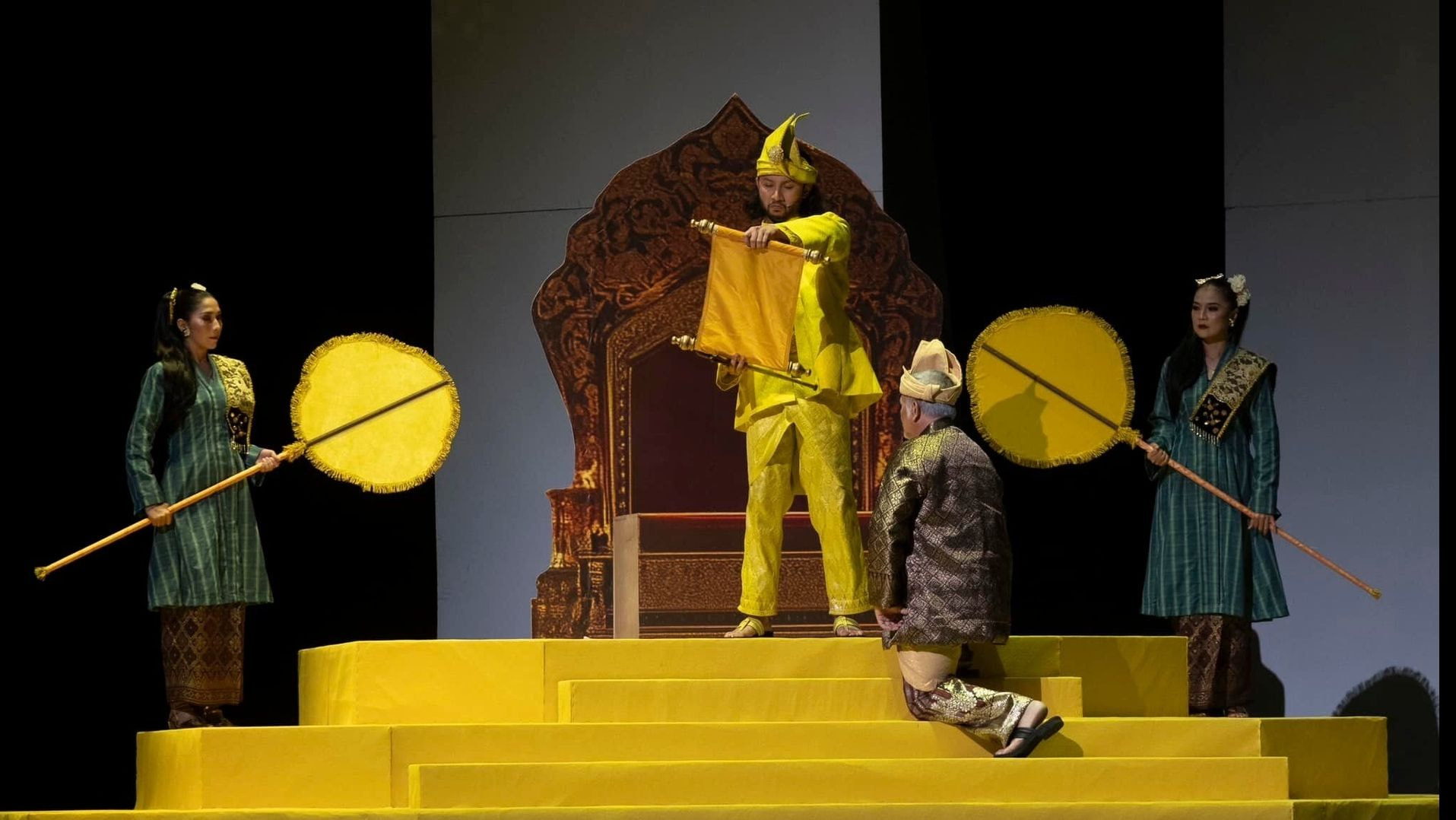17.10.2024
Bangsawan: A Cultural Gem of Malay Theatre
Discover the rich tradition of bangsawan, a form of aristocratic Malay theater. Rooted in Malay heritage and influenced by Indian, Persian, and Western elements, bangsawan remains a timeless cultural treasure across Southeast Asia, despite the challenges of modern entertainment.

By Raja Izz
Sultan Melaka during Teater Muzikal Puteri Hang Li Po.
Photos courtesy from Istana Budaya.
In a country steeped with adat and tradition, there is a deep admiration and respect on bangsawan; their mannerism, culture, and tradition. Amongst this is bangsawan theatre, a cultural jewel that encapsulates the essence of noble Malaysian heritage.
As I discover the world of the bangsawan, I'm immediately struck by the air of refinement that permeates every aspect of their lives. It's a world where elegance and poise are not just admired but expected, where education is revered, and where tradition is upheld with unwavering dedication. But to understand this, is to understand the enduring legacy of Malay high-culture in drama storytelling: bangsawan.
The Tradition of Malay Theatre: Bangsawan
The rich and storied tradition of bangsawan, or aristocratic Malay theater, offers a window into a bygone era, where narratives of nobility, romance, and moral virtue were performed before eager audiences in Southeast Asia. Rooted in both Malay heritage and external influences, bangsawan emerged as a popular form of drama in the late 19th century and continued to shape cultural identities in Malaysia, Singapore, and Indonesia. Though its prominence has waned in the face of modern entertainment and digital media, bangsawan remains a crucial part of the cultural landscape, standing as a testament to the region’s artistic innovation and storytelling prowess.

